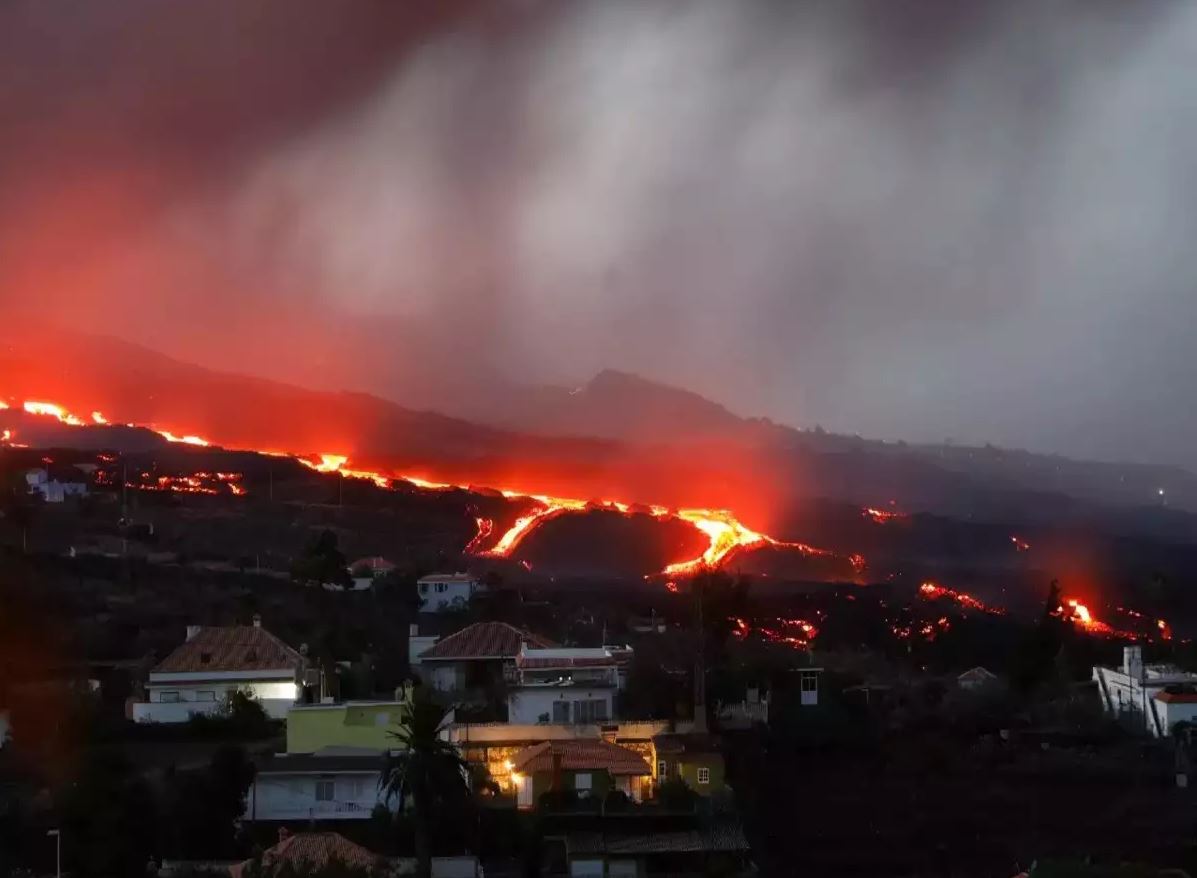It’s been one month since the Cumbre Vieja volcano erupted on the Spanish island of La Palma, spewing lava and scorching ash. Culberta Cruz, her husband, and their dog are now living in a tiny caravan in a parking lot, and they don’t see any relief from the situation any time soon.
“I’m exhausted, I’m completely exhausted… “However, who are we to stand up against nature?” “I’m 56 years old and I’m sitting on an unfolded camping chair,” said the hospital kitchen worker.
Her husband, banana farmer Tono González, was dragging electrical wires and water hoses to attach to the truck as their French bulldog kept an eye on things from the sidelines. For the last month, the couple has been living in a tiny camper, regularly cleaning volcanic ash off the inside of the car.
“One day it’s bursting there, and the next a vent opens here, and it’s just agony and living in terror, hoping and praying that it stops blasting,” Cruz described the situation. “It’s also heartbreaking for those who have lost their homes.”
Since the eruption started on September 19, streams of red-hot lava have consumed almost 800 hectares (2,000 acres) of land, destroying about 2,000 houses and a large number of banana crops in the process. It is estimated that around 6,000 individuals have been forced to flee their houses.
Volcanologists have said that they are unable to estimate how long the volcano will continue to spew molten lava into the atmosphere.
After being forced to leave, Cruz and González initially slept at a relative’s property before driving their caravan to a parking lot where they were able to get clean water and a little amount of power. Cruz and González were not injured. They are currently contemplating whether or not to rent an apartment that allows pets.
“The trouble is that we don’t know when it’s going to end,” says the source. González said that “this is nature, and we have to cope with it since it is greater than us.”
“The future is to attempt to take away what (belongings) we had and wait for it to finish, then go back to the lifestyles we had before, even if it is more difficult,” Cruz said.

